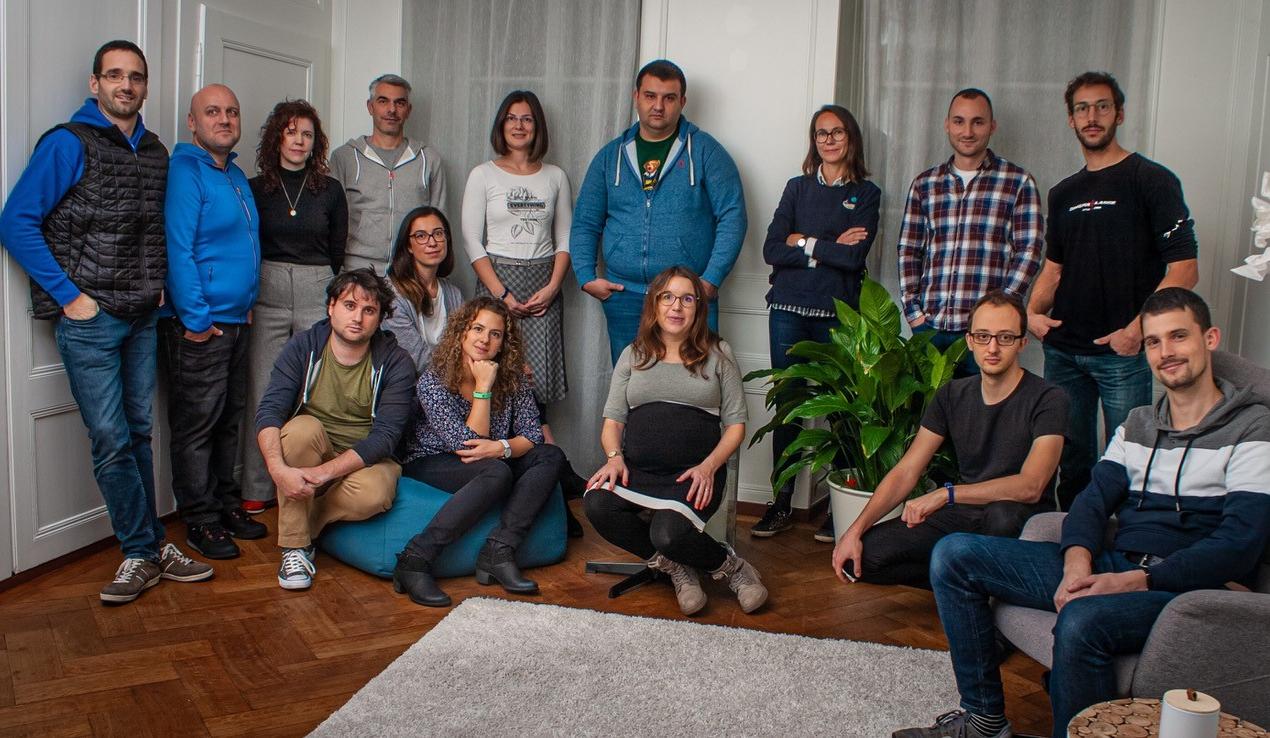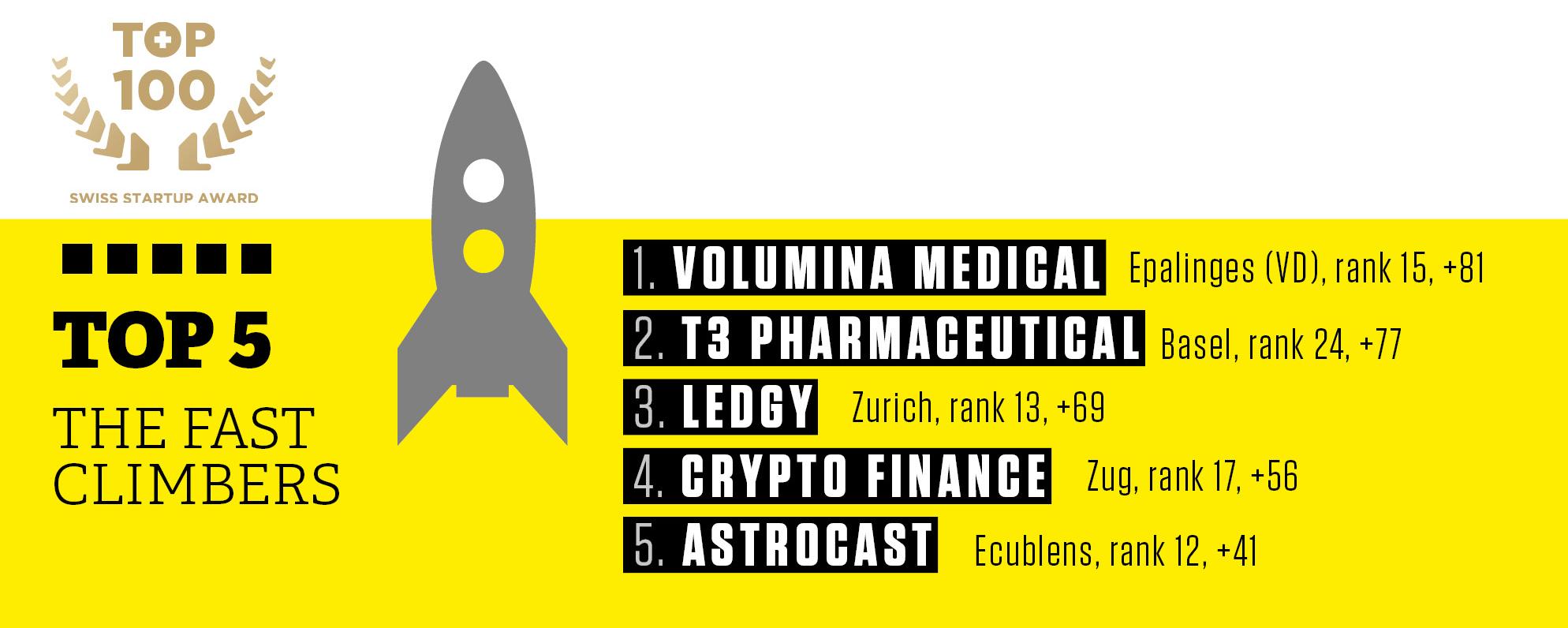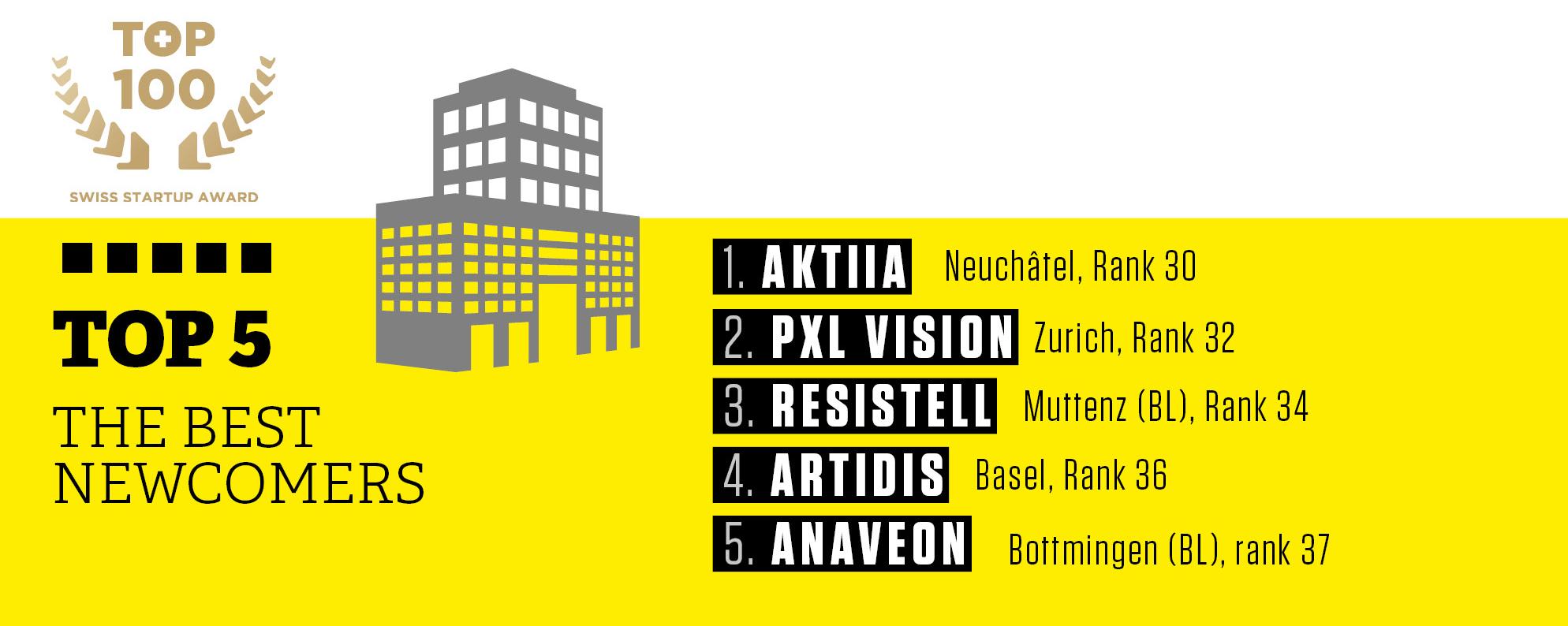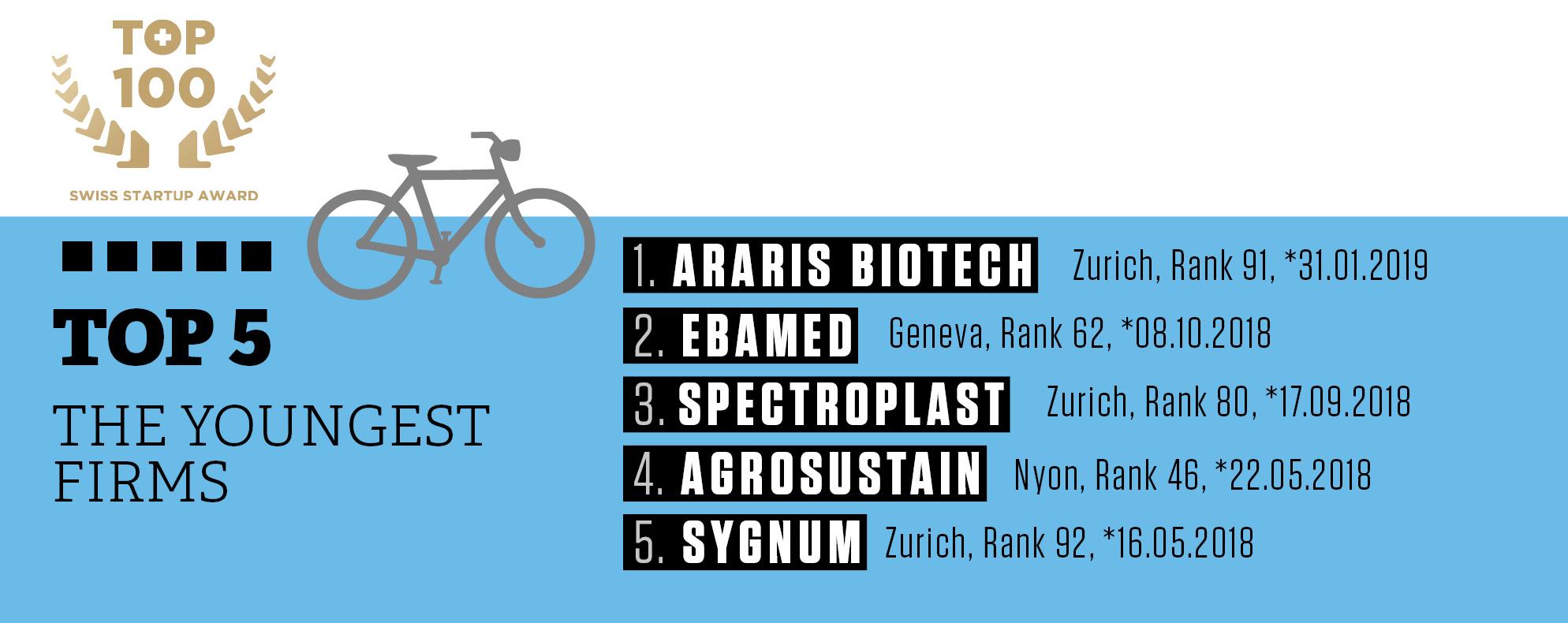The TOP 100 Swiss Startup Award ranking features young companies from a range of different sectors. Meet the 5 Swiss startups which took the top spots in the medtech sector in this year's ranking.
Lausanne medtech company Lunaphore has overcome the hurdle from product development to market entry.

Apply cuff, inflate, read off values: the basic principle of blood pressure measurement has remained the same for more than 100 years. Start-up aktiia could change this: it measures blood pressure with the help of a wristband that works with commercially available optical sensors similar to other wearables. Extensive testing with the aim of clinical validation has been very promising so far.
5. Artidis, Basel, rank 36
Faster diagnosis and more precise breast cancer treatment: that’s the goal of Artidis. The start-up relies on a nanotechnological instrument that scans tissue samples and not only recognises a tumour, but also assesses its aggressiveness, thus reducing the risk of over or under-treatment.It usually takes several days, sometimes even weeks, until the first results of a cancer examination are available and the uncertainty can be very stressful for patients. However, start-up Artidis, based in the Technologiepark Basel, intends to change this. Physicist and CEO Marija Plodinec (below) and her co-founders Philipp Oertle, Tobias Appenzeller and Marko Loparic have succeeded in building an analysis device based on atomic force microscopy that largely automates tumour analysis and can determine whether the cancer is benign or malignant in less than three hours. The analysis also sheds light on the potential of the cancer to form metastases. “This will then enable personalised cancer treatment for the individual patient,” explains Plodinec. The 15-head spin-off of the University of Basel’s Biozentrum is now starting production of the first 10 analysis devices to bring to the market next year. Artidis is currently funded by investment funds, private investors and family offices.
Go Global: We are inviting all Swiss medtech startups to apply for the Venture Leaders Program 2020! Are you a founder? Join us on our roadshow to Silicon Valley or Boston, to make your startup ready for international partnerships, investments & scale-up!
aktiia SA (Hilo): Reinventing Blood Pressure Monitoring
Aktiia was founded in Switzerland in May 2018 out of a passion to create the best tool for diagnosis and treatment of hypertension. Aktiia’s founders, Mattia Bertschi (CEO) and Josep Solà (CTO), previ... Read more
ARTIDIS AG: Nanotechnology tool for cancer diagnosis and treatment
ARTIDIS AG is a clinical stage health-tech company founded in Basel, Switzerland, that has developed the first nanomechanical biomarker for cancer diagnosis and treatment optimization. ARTIDIS nanotec... Read more
Lunaphore Technologies SA: Tumor analysis platform
Lunaphore is disrupting tissue diagnostics field by fundamentally changing the time and resource driven nature of diagnostic assays on tumor sections. Just like the fast sequencing technologies have m... Read more
Piavita AG: Daily assistant for equine veterinarians
Piavita AG is a Zurich-based medtech start-up aiming at transforming the veterinary industry. The Piavet System provides veterinarians an easy, comprehensive and high-precision vital sign monitoring ... Read more





